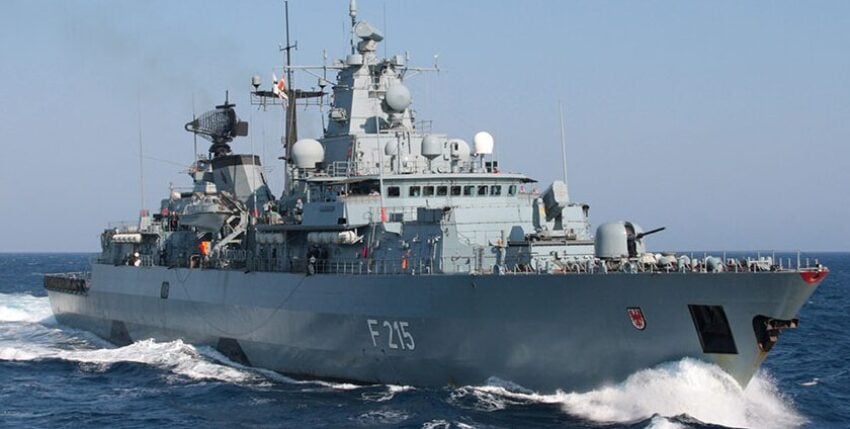From a press release by the Rostock Naval Command:
On Thursday, 21 March 2024 at 10 a.m., the frigate "Brandenburg" will leave its home port of Wilhelmshaven to take part in the mandated foreign mission UNIFIL (United Nations Interim Force in Lebanon) off the Lebanese coast. Under the command of frigate captain Andreas Scheiba (45), the crew will assist with maritime surveillance and training of the Lebanese navy off the Lebanese coast until mid-July 2024.
"In recent months, the ship and crew have been preparing intensively for the mission ahead of us and we have impressively demonstrated the operational capability of the frigate 'Brandenburg'," says the commander. "However, we must not delude ourselves, the sea area to which we are deploying is characterised by crises and tensions. The situation there is volatile, but our recent training has prepared us in the best possible way for the expected scenarios on the ground," continues Scheiba.
The ship is leaving with a crew of 203 soldiers. The "Brandenburg" will replace the frigate "Baden-Württemberg", which successfully completed its first deployment there.
Background information
Blue helmets from the UNIFIL mission have been working to bring peace between Lebanon and Israel since 1978. This makes the mission one of the oldest peacekeeping operations of the United Nations (UN). It is based on UN Security Council Resolutions 425 (1978) and 426 (1978).
The initial task was to monitor the desired ceasefire and the withdrawal of Israeli security forces from Lebanon. After the Second Lebanon War in 2006, the mandate was extended. Since then, UNIFIL has supported the Lebanese government in securing the maritime borders and preventing arms smuggling by sea. The UNIFIL maritime task force was the first naval unit under the leadership of the United Nations - German ships and boats have been operating in this unit from the very beginning. The ships prevent the smuggling of weapons by sea into Lebanon and thus contribute to stability and security in the region. The Lebanese navy has valuable equipment
from Germany, including guard boats and coastal radar stations. German soldiers have also been involved in training the Lebanese navy for several years.











2 responses
Why does the "Baden-Württemberg" have to be replaced now? An F125 is sufficiently designed for the UNIFIL mission (in contrast to a mission in the Red Sea) and it has always been communicated that the strength of the F125 ships is that they can remain in the operational area for up to 2 years with regular crew changes. So now it's time to change them again in the familiar rhythm with the corresponding expenditure of time and fuel consumption etc.
As you know, Baden-Württemberg has a long programme ahead of it and is not going home, which you can read about here: https://esut.de/2023/10/meldungen/45098/fregatte-baden-wuerttemberg-verlegt-richtung-libanon/. So there's no need to get upset.